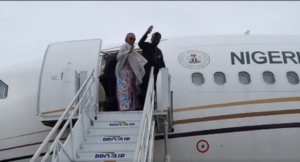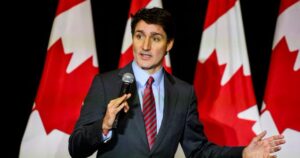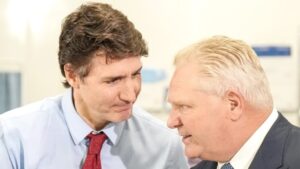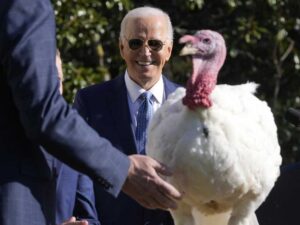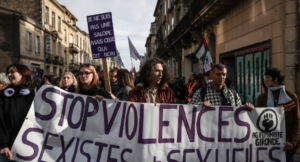The Southern Leaders Forum on Wednesday in Lagos faulted President Muhammadu Buhari’s statement that issues of national discourse should be taken to the National Assembly and the National Council of State.
Buhari made the statement among others in his Monday broadcast after 104-day medical trip to the United kingdom.
The forum, represented by Chiefs Edwin Clark, Albert Horsefall (South-South); Chief John Nwodo, Prof. Joe Irukwu (South-East); and Chief Reuben Fasoranti, Chief Ayo Adebanjo (South-West), spoke in Lagos at a press conference titled: “Only Restructuring will Ensure the Unity, Peace and Development of Nigeria.”
Others at the event included Prof. Banji Akintoye; Tony Uranta; National Coordinator of the Oodua Peoples Congress, Chief Gani Adams; Supo Shonibare; Guy Ikokwu; Tony Nyiam; and Prof. Walter Ofonagoro.
The forum stated that while it did not dispute the legality of the National Assembly and NCS, the bodies were not the appropriate bodies to superintend the discourse on the social contract that could bind Nigeria together.
It said: “While the composition of the National Assembly is clearly jigged and indeed one of the bodies to be restructured, the National Council of State is not open to Nigerians. If any discourse is to take place on constitutional changes within the democratic framework, Mr. President is the one who has the responsibility to initiate the process.”
The forum added that the attempt to treat hate speech as terrorism was a veiled threat to bare fangs and criminalising dissenting opinions in the national discourse.
The group accused the President of deploying the imagery of the late Chief Chukwuemeka Odumegwu-Ojukwu in his broadcast to play down the demand for the renegotiation of the structure of Nigeria by saying they both agreed in Daura in 2003 that the country must remain one and united.
The SLF said: “The meeting between the two of them could not have been a Sovereign National Conference whose decisions cannot be reviewed. We agree with their conclusion that we should remain united, but that does not foreclose discussions of the terms and conditions of the union.
“The claim that Nigeria’s unity is settled and not negotiable is not tenable. Every country is in a daily dialogue and there is nothing finally settled in its life. Stable nations are still fine-tuning details of the architecture of their existence. How much more Nigeria that has yet to attain nationhood? If we are settled as a nation, we will not be dealing with the many crises of nation-building that are afflicting us today, which have made it extremely difficult to squarely face issues of growth and development.
“The British negotiated to put the various ethnic groups together. All the constitutional conferences held in the years before independence were negotiations. When the North walked out of the parliament in 1953 after Chief Anthony Enahoro moved the motion for independence, it took negotiations to bring them back into the union after an eight-point agenda, which was mainly about confederations.”
It pointed out that the one sentence in the President’s speech that every Nigerian could live anywhere without let or hindrance, if meant to address the quit notice by Arewa youths to the Igbo living in the North, was too short to check the unwarranted threat.
The group further said it was miffed by Buhari’s description of the attacks by deadly Fulani herdsmen on defenceless farmers as conflict between two quarrelling groups.
“To present the various onslaughts on farmers by the herdsmen as ‘two fighting,’ would portray the President as taking sides with the aggressive Meyitti Allah. While we do not hold the administration responsible for all agitations in Nigeria due to the crises of unitary constitution, there are clearly many errors of commission and omission that have accentuated the strong self-determination feelings across the country which only restructuring can tame,” the group said.
According to the leaders, some of the errors made by the current administration are lopsided recruitment and appointment into federal institutions, breach of the Federal Character principle, early retirement of mostly Southern senior officers from the Armed Forces and other security services and concentration of most heads of Armed Forces and other national security agencies in a section of the country.
The group identified others to include the appointment of the legal adviser of Meyitti Allah as the secretary of the Federal Character Commission, indifference to the deadly activities of herdsmen and the President’s declaration that he could not treat those who gave him five per cent votes equally with those who gave him 97 per cent votes in the 2015 presidential election.
The Southern elders noted that having spent most part of their lives fighting for the country’s unity based on justice, fairness and equity, it was necessary to urge the President to realise the mess the country was in and exhibit statesmanship and not ethnic, religious, regional and political partisanship in renegotiating Nigeria along federal lines to tackle separatist feelings and agitations.



